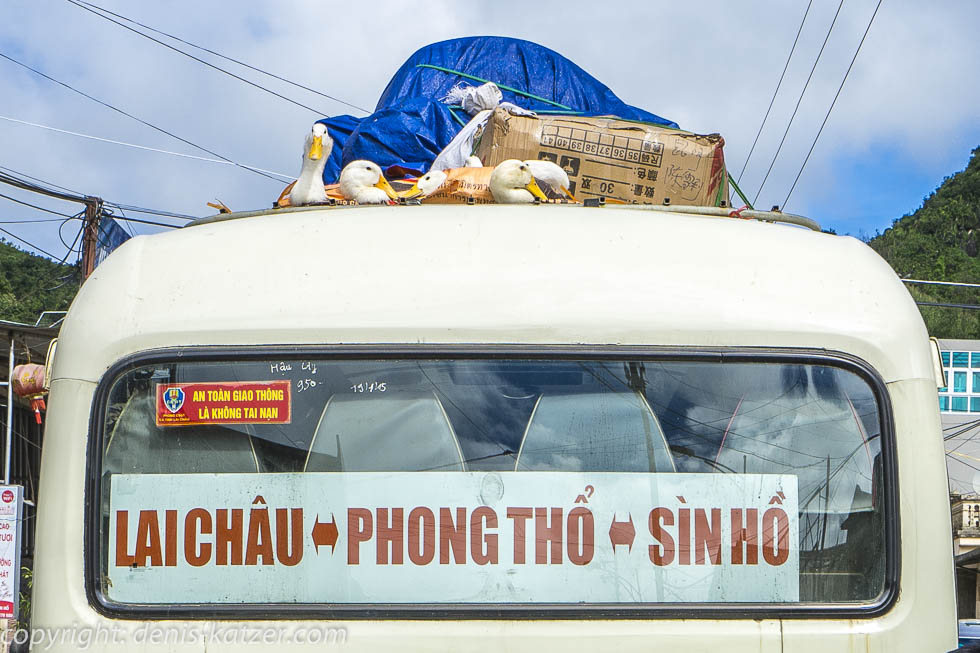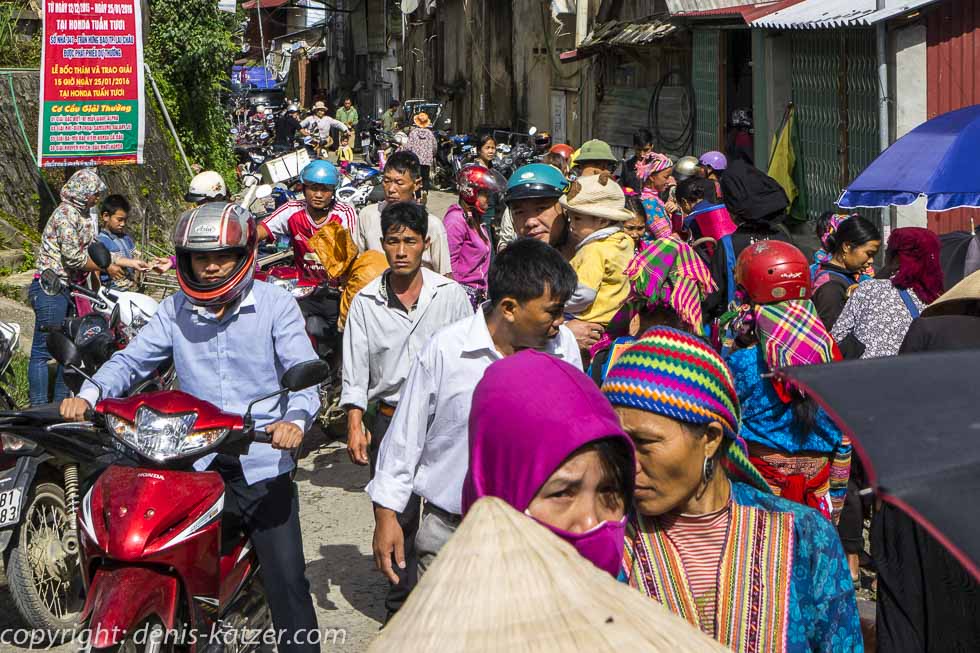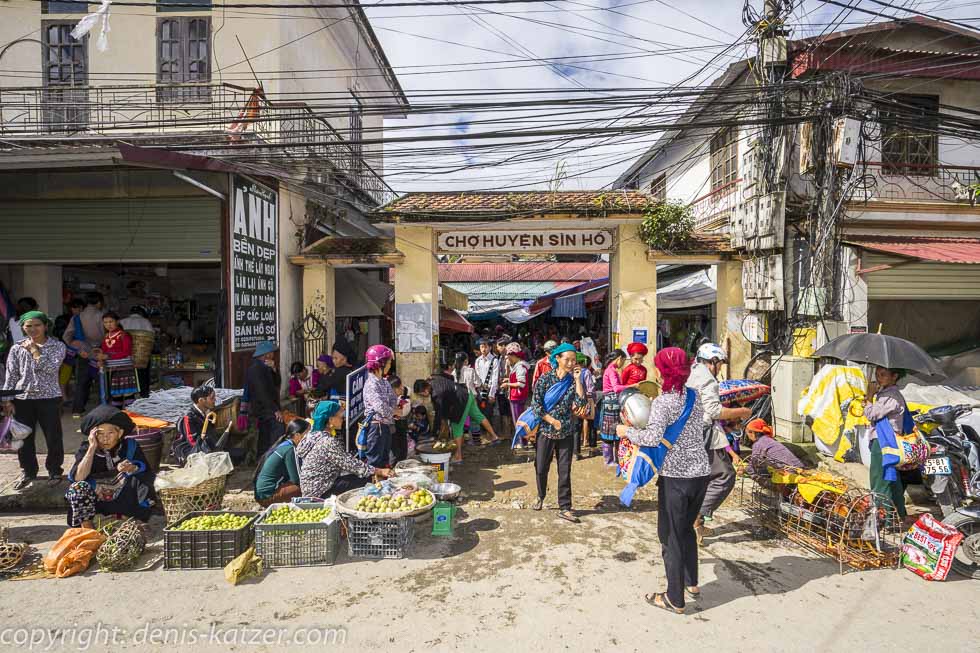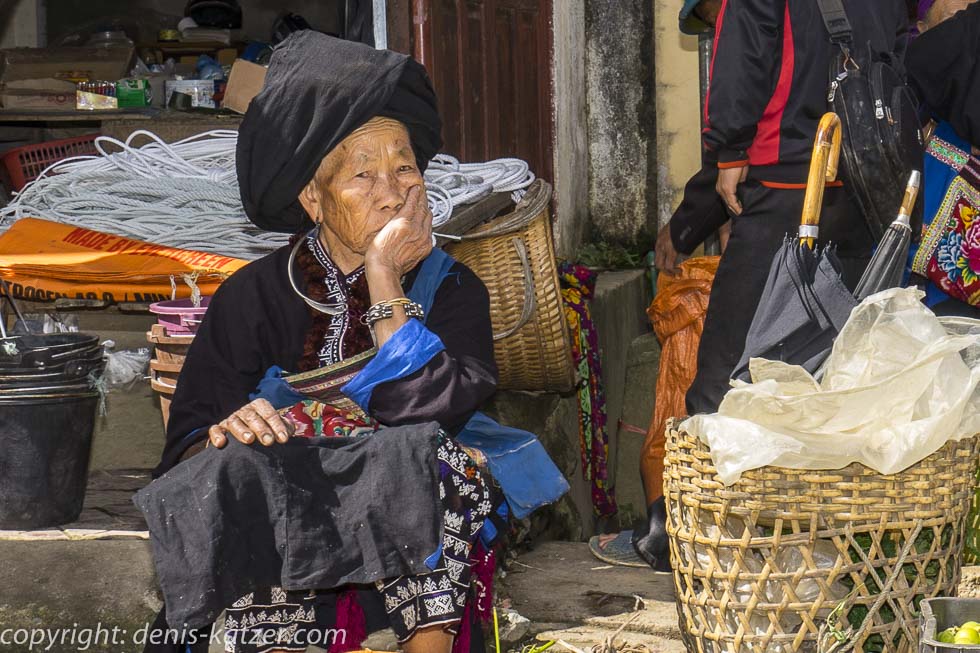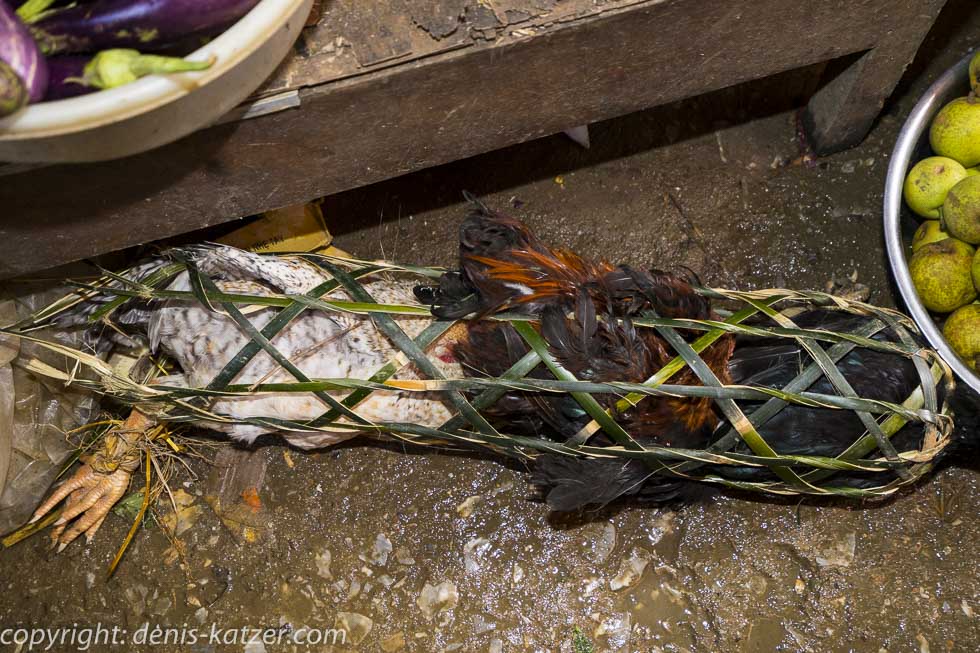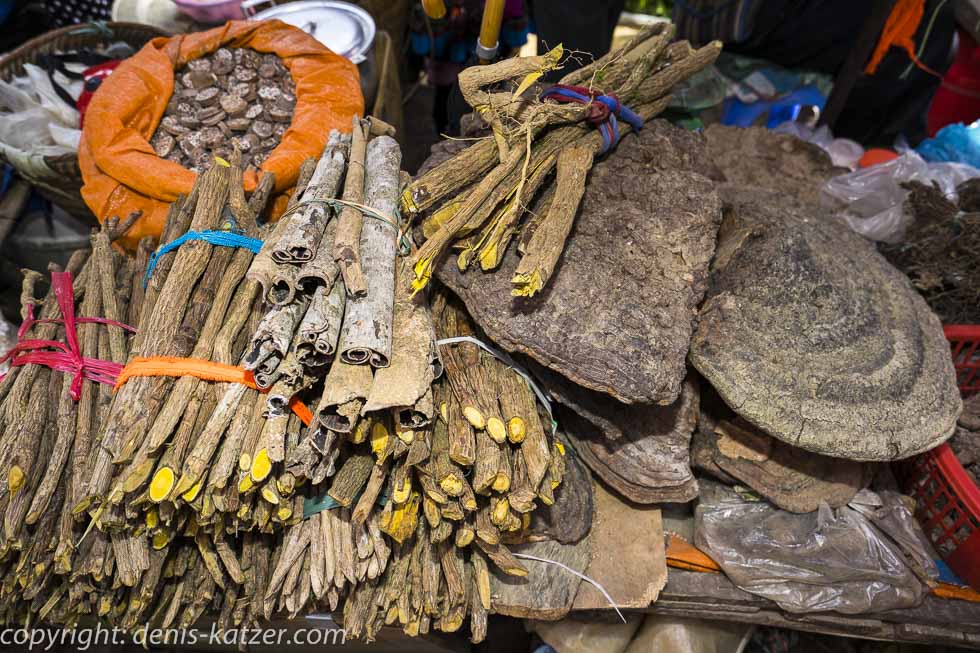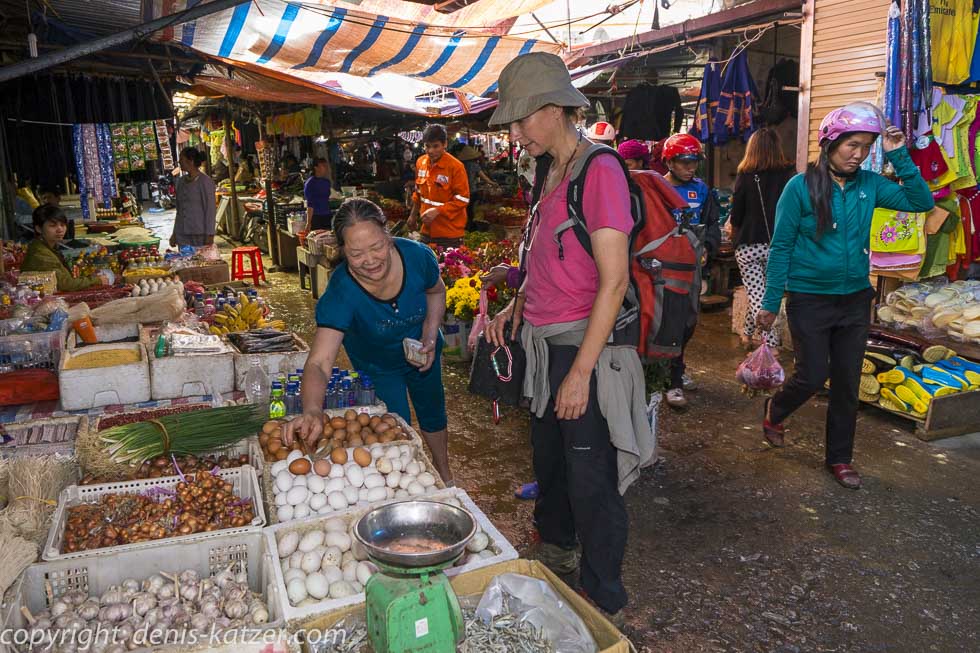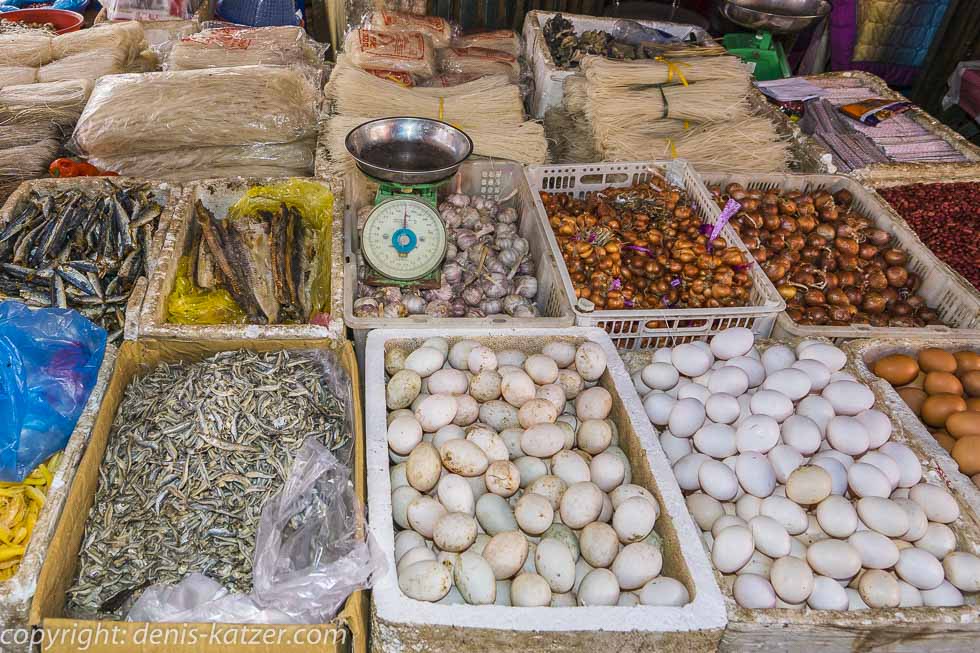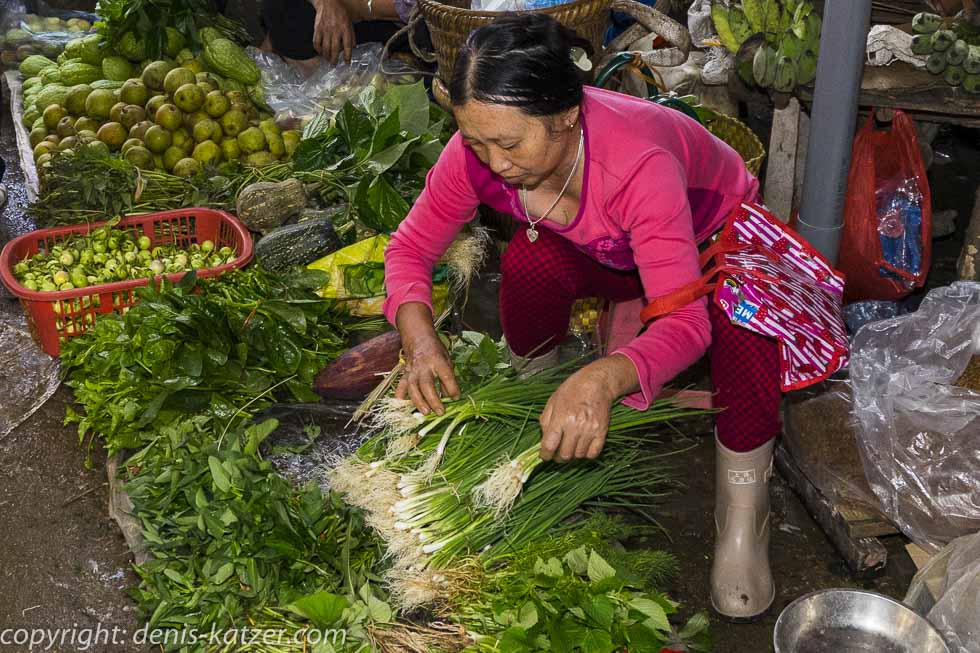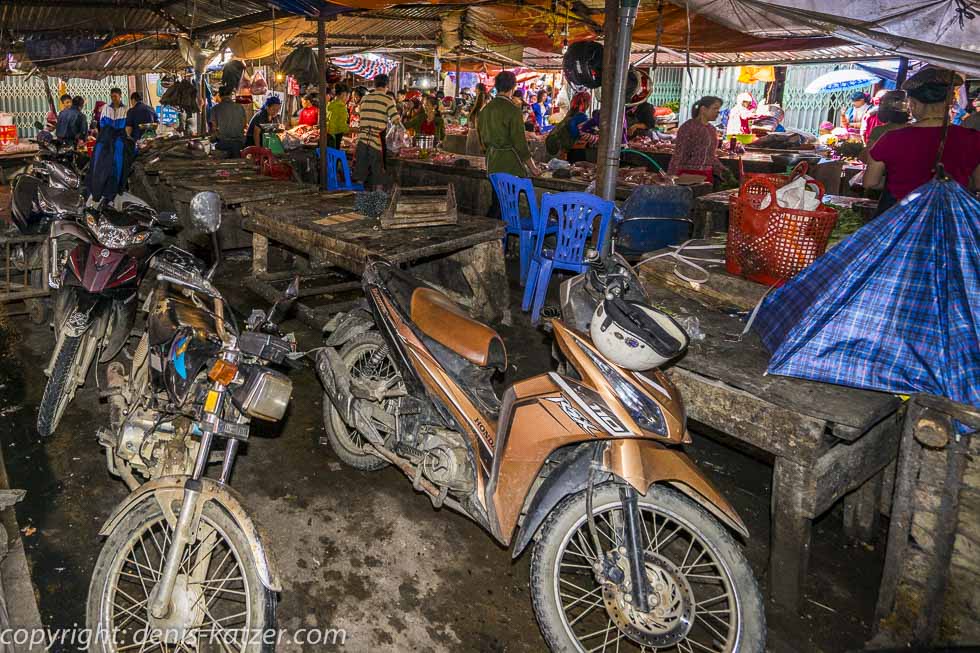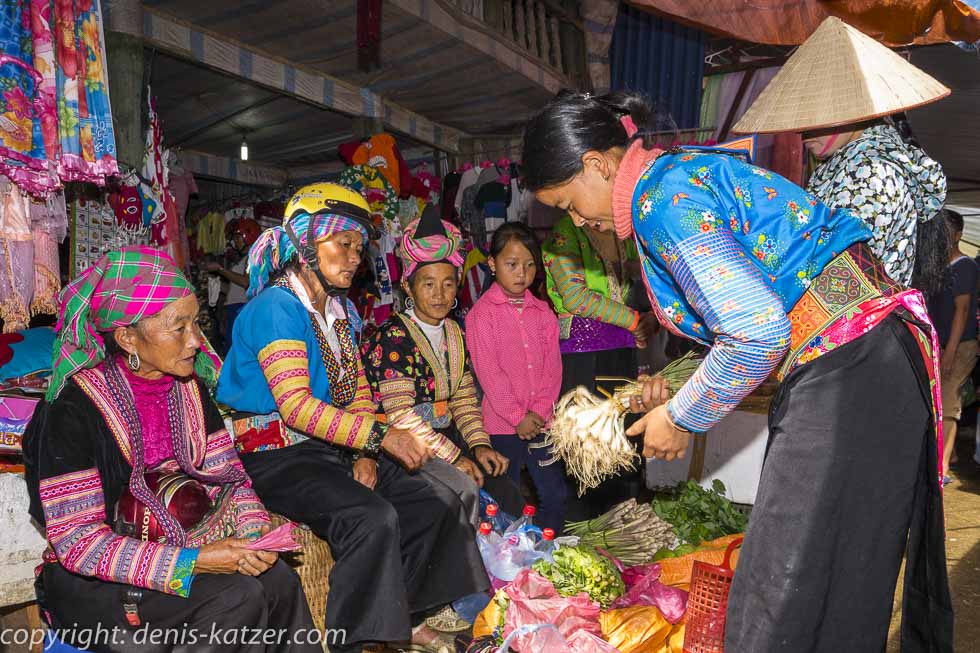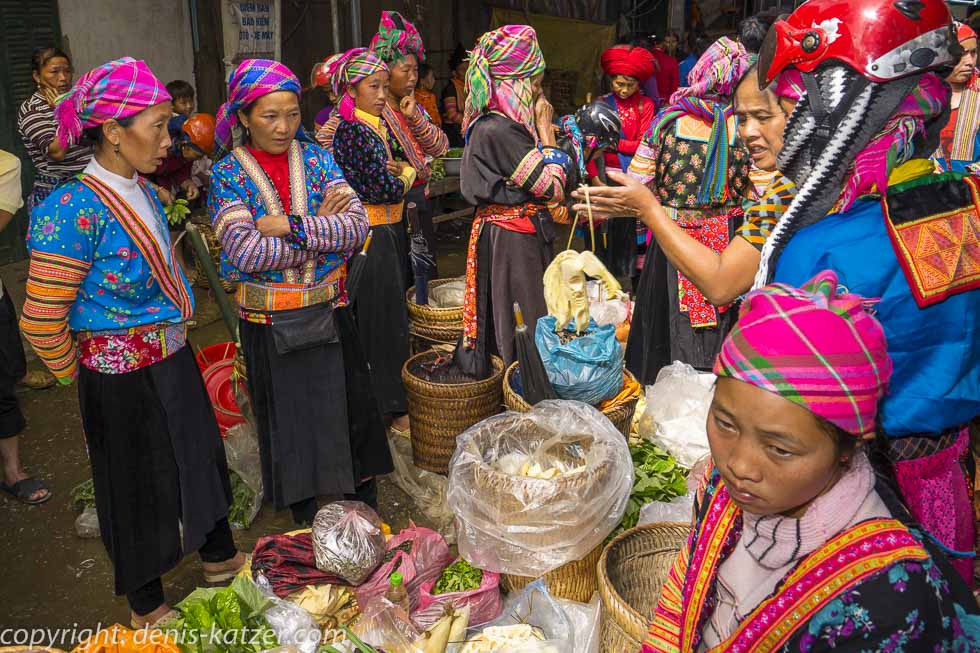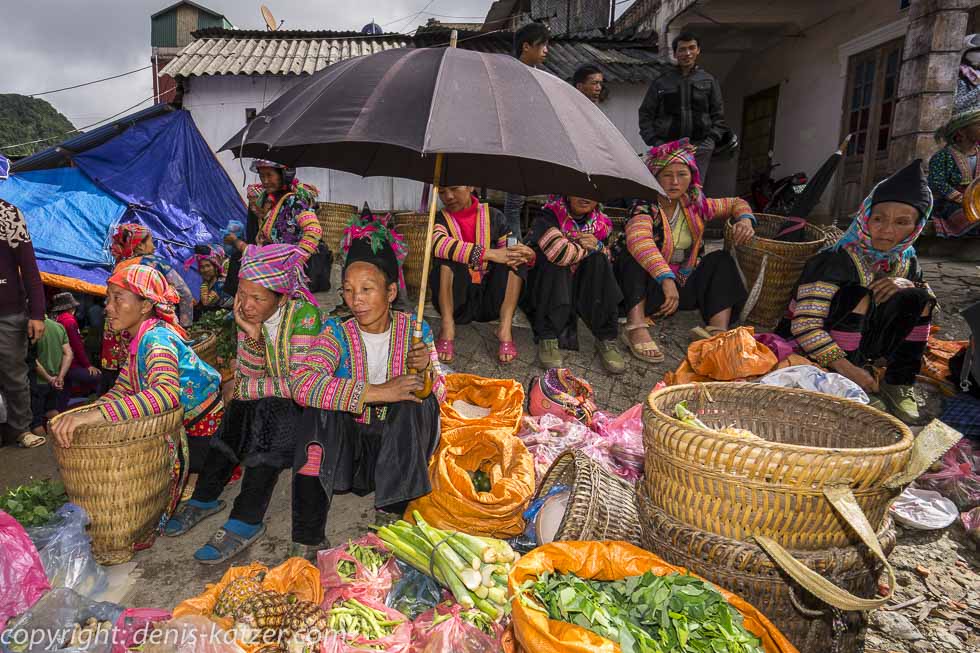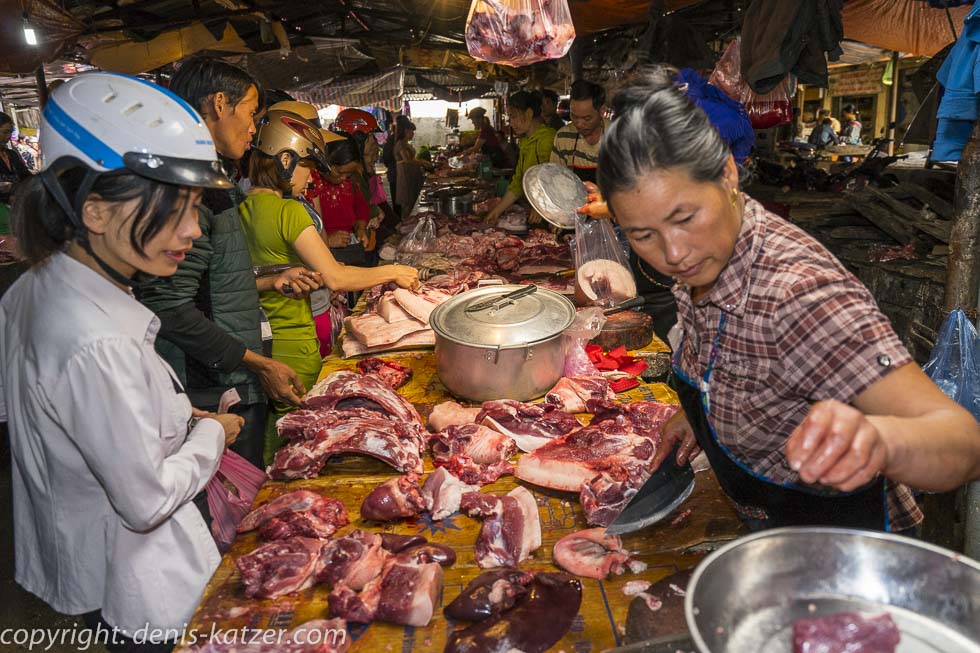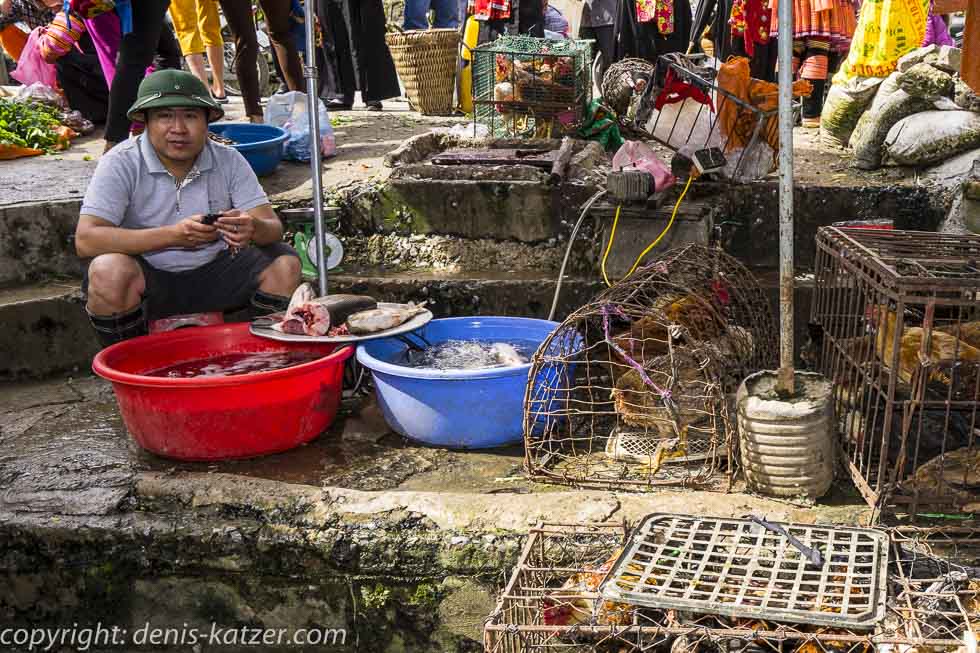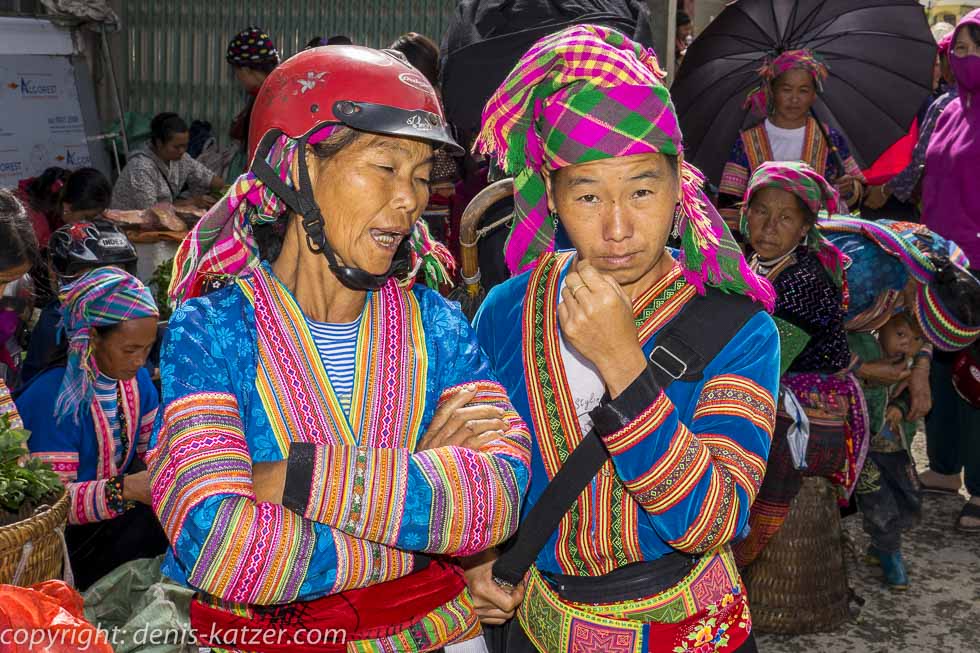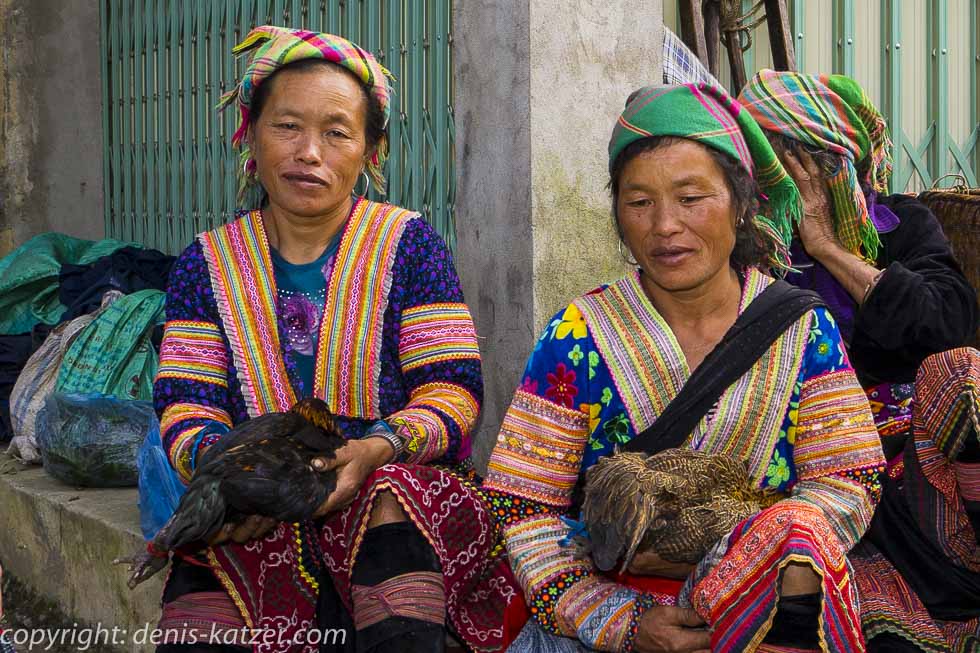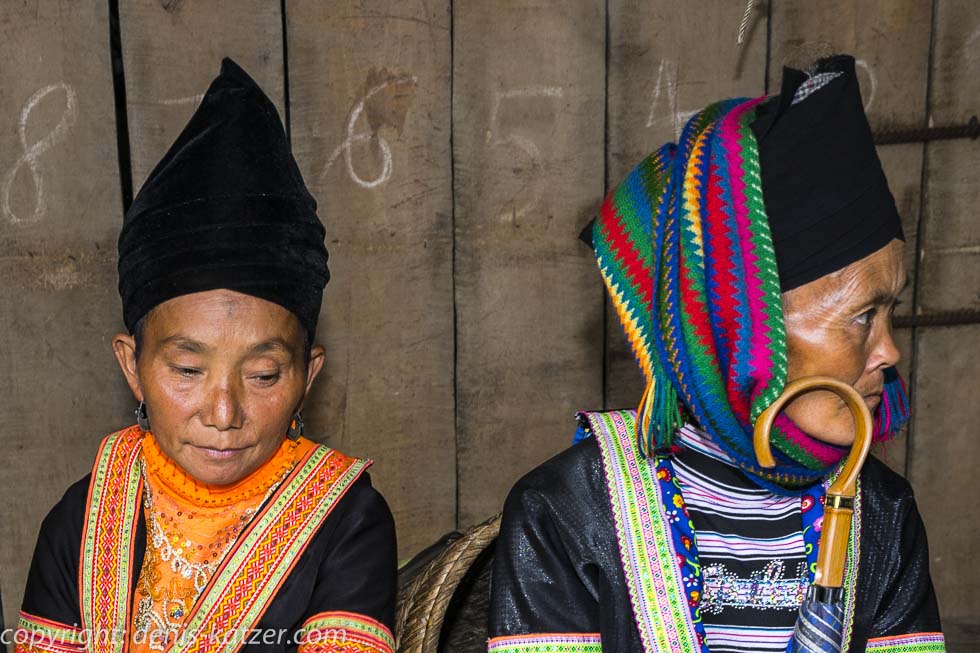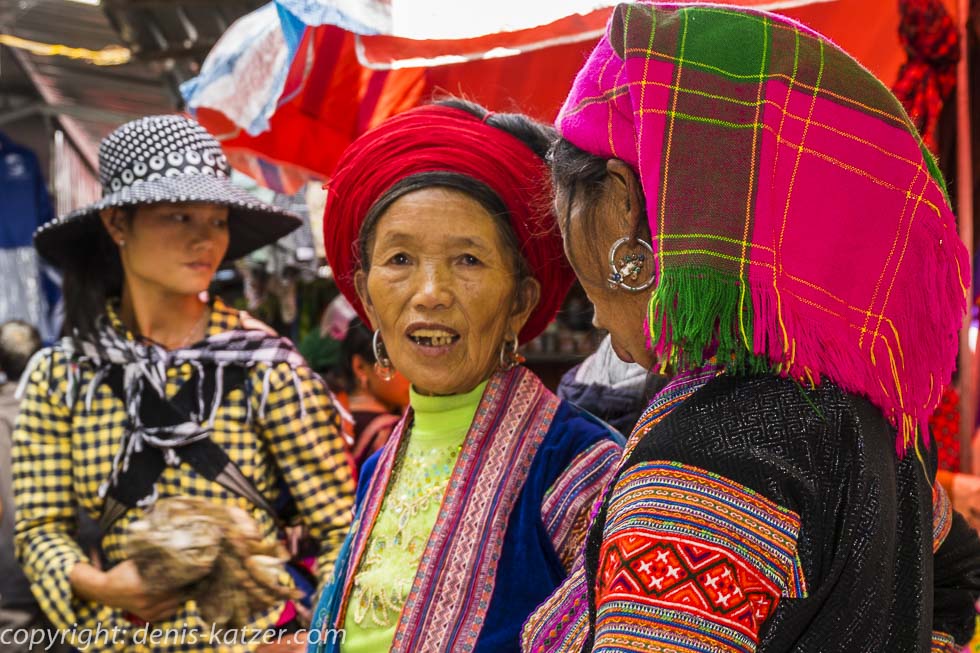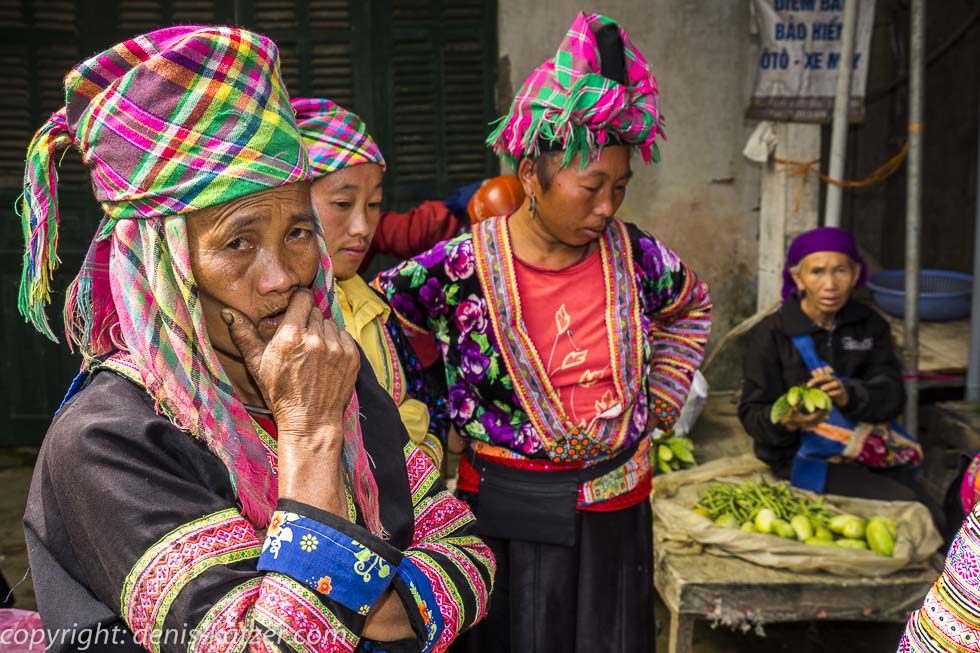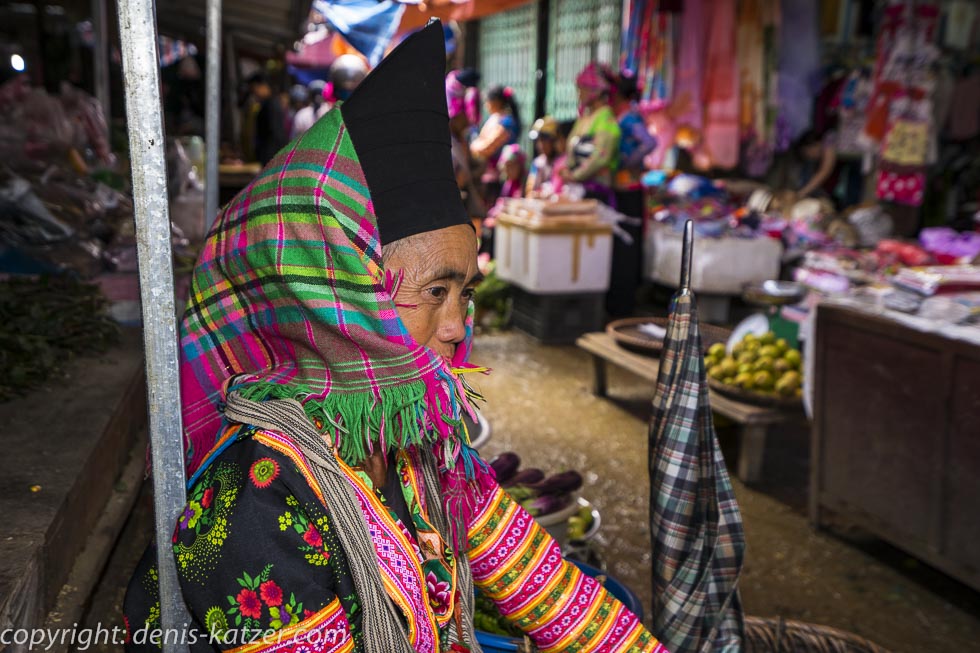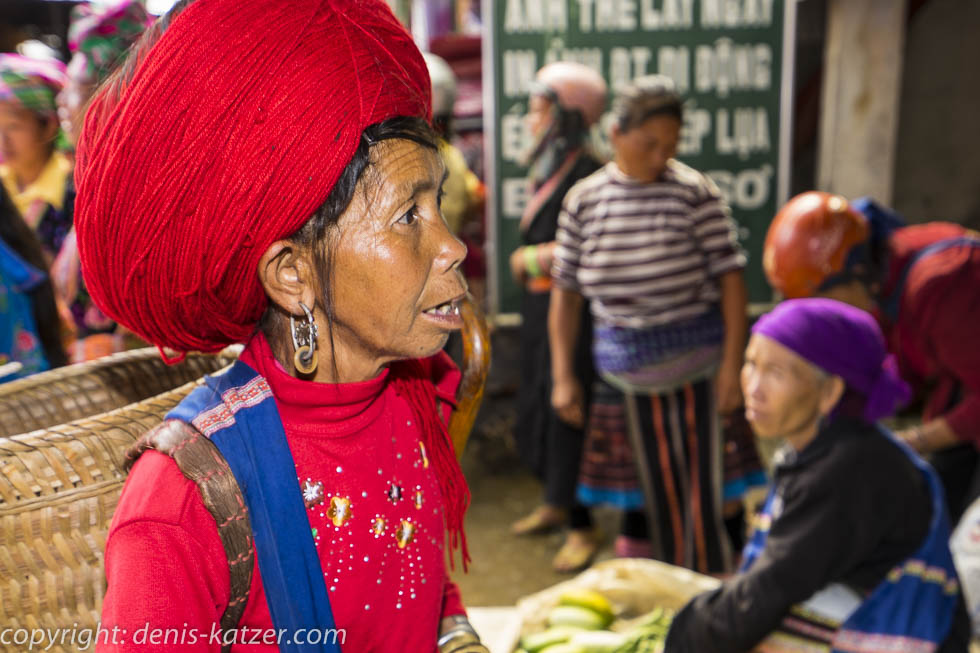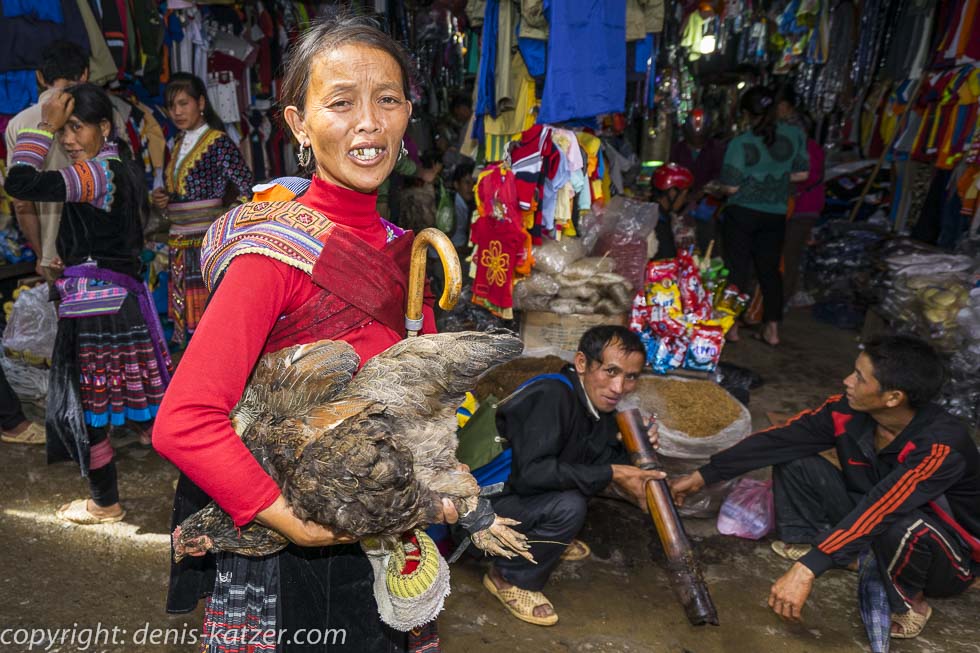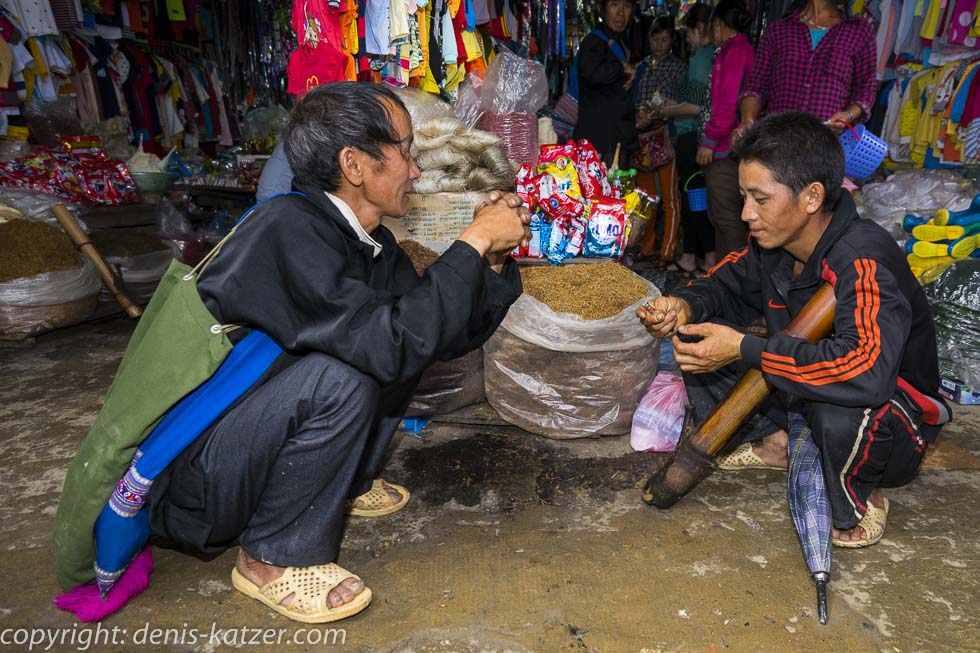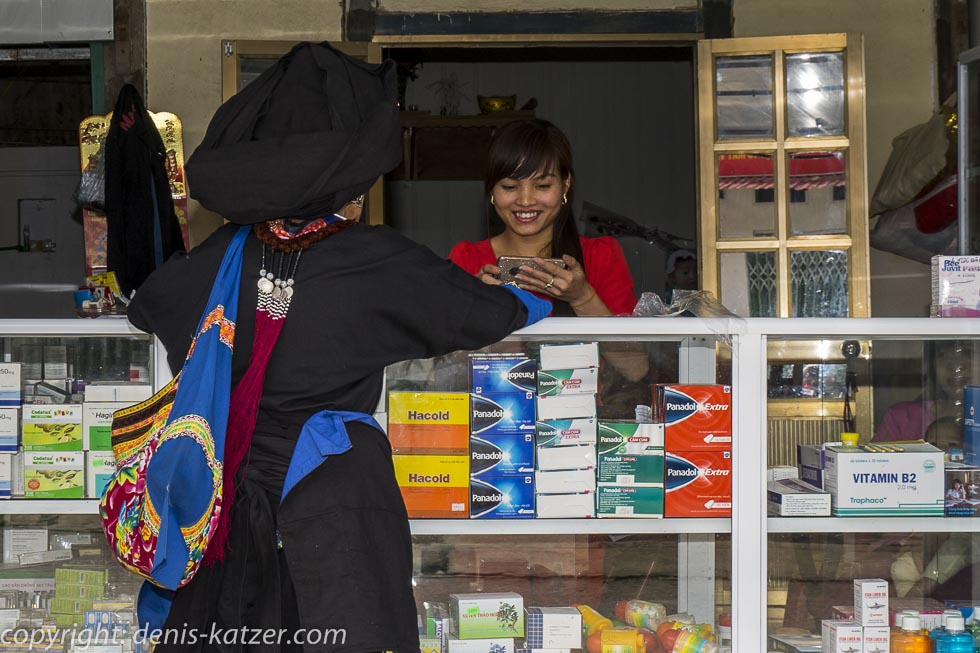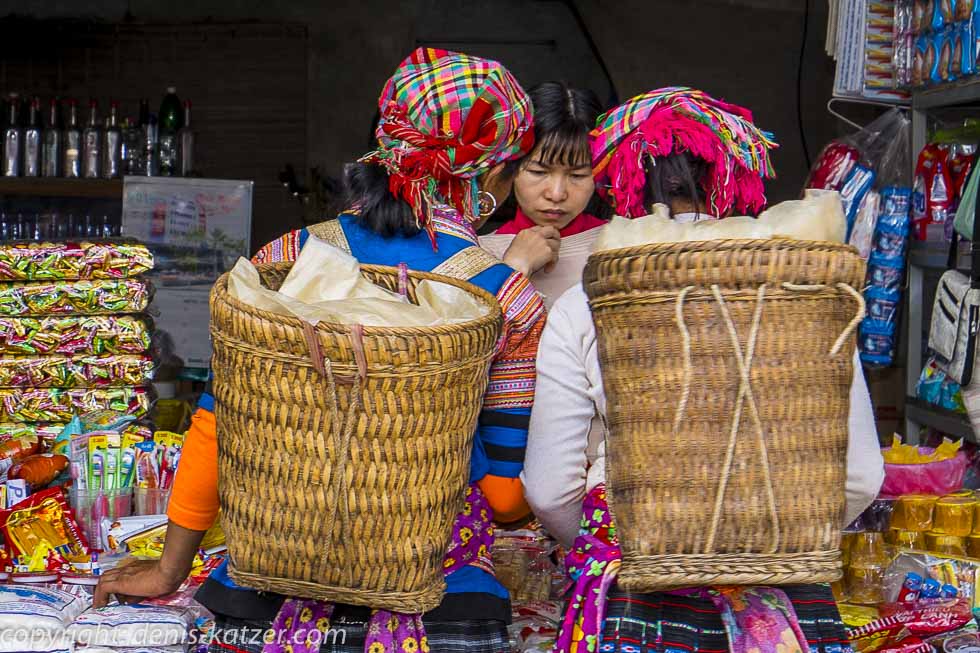
Thank you, we’re not buying any poultry today – Sunday market in Sin Ho
N 22°21'42.1'' E 103°14'40.1''
Date:
17.07.2016 until 18.07.2016
Day: 386-387
Country:
Vietnam
Province:
Lào Cai
Location:
Sin Ho
Latitude N:
22°21’42.1”
Longitude E:
103°14’40.1”
Total kilometers:
17,582 km
Total altitude meters:
48.088 m
Sunrise:
05:32
Sunset:
6:53 pm
Temperature day max:
23°C
Temperature day min:
19°C
(Photos of the diary entry can be found at the end of the text).
“Oh my thighs,” says Tanja as she slowly gets out of bed in the early morning. “What about your thighs?” I ask, yawning. “Sore muscles,” I hear her reply. As I stand up, I can also feel my legs, which feel like two pumped-up bridge piers after yesterday’s mountain crossing. After a simple breakfast, we set off to visit the Sunday market in this village, which is far removed from the rest of the world.
For centuries, the northwest of Vietnam was a remote, mountainous and, for many people, almost inaccessible mysterious region. All you could hear were strange, fairytale-like stories that slowly seeped over the remote tropical mountains into the flat coastal land. Mystical stories about the nomadic tribes living here, who have come to terms with a hostile natural environment for ages. The tribes who lived in the mountainous regions of northwestern Vietnam, northern Laos, southern Myanmar, southern China and northern Thailand were described as wild, brutal, barbaric and ruthless, without really knowing who they were or how they lived. They hardly traded with the hard-to-reach outside world, were threatened by wild animals such as the tiger and poisonous snakes and a merciless nature. Isolated for centuries, each individual mountain tribe developed its own culture and language. It was only when the French began to colonize Vietnam that isolated travellers ventured into this part of the country and brought back breathtaking reports from a hitherto foreign world. To this day, the culture of the unique ethnic tribes such as the Thai, Muong, Knife, Lu, Khang, H’mong and Giay etc. has been largely preserved.
The closer we get to the Sunday market, the denser the hustle and bustle becomes. Mopeds squeeze through colorfully dressed people, honking loudly. Vendors shout their wares, their simple stalls lined up along the roadside. “Hello! Hello!”, we are greeted in a friendly manner. The sun, which squeezes through a few storm clouds, illuminates the chaotic mess and licks away a few steaming puddles. Undefinable exotic smells mingle in the warm, humid air. “There’s the entrance,” I say, pointing to the red lettering on a brick gate. To the left, an old woman dressed in black sits on the sidewalk. At her feet lie two chickens tied together like sausages in an elongated woven raffia basket. On the other side of the narrow alley, however, chickens cluck loudly in a wire mesh, waiting for their buyers. In between are plastic baskets of fresh fruit, piles of dried mushrooms, tied roots, dried fish, bundles of pasta, pickled garlic, large and small eggs, mountains of fresh vegetables and even fresh flowers. In the maelstrom of people, we are pushed into the inner part of the market, which is covered with plastic sheeting. Numerous mopeds from the many vendors are parked behind old, rotten wooden tables. The air in the shade is steamy and breathes like viscous honey. The cries of the many people mingle here with the clucking of numerous chickens, with the butcher’s cleaver hurtling downwards, with the terrible death cry of a sow being stabbed before our eyes. Frogs and toads in pots and baskets hop incessantly against the unyielding boundary in order to escape their inevitable fate after all. Chcht! Chcht! Chcht!, the sharp knife hisses through lumps of meat that land in a small scale. Fish bob around in large plastic bowls filled with stagnant water. A hand reaches into the oxygen-pumping gills of a fish and pulls it up out of its element. Landing on the stone floor, he wriggles wildly. The blade of a knife cuts the animal in half. The salesman smiles at me. Startled, I respond to his zest for life and keep walking. Water, garbage and waste turn the ground into a slide. Two peasant women dressed in colorful traditional costumes are chatting animatedly, while others hold a chicken on their laps and hold it out to them. “Thank you, we’re not buying any poultry today,” I say cheerfully, although the smells and the cries of one or two of the animals are a bit of a stomach-churning experience. Pushed and shoved by countless arms and elbows, we continue through the melting pot of different tribes, some of which can be recognized by their different traditional clothing and headdresses. Most of them had to lug their goods many kilometers from the nearby mountains in simple carriers to be able to offer and sell them here. Of the more than 8 million people from over 50 ethnic minorities, 50 percent still live in poverty today. Their dwellings often consist of dark wooden huts, without wooden floors and without running water. Many of the mountain people have no bed and sleep on the hard ground. Medical care in these remote regions is inadequate or non-existent. Hardly anything has changed for centuries. And yet the people give us a proud and happy impression. The women wear their home-woven costumes and headscarves with self-confidence. Everyone dressed up for the Sunday market. “Do you want a chicken,” a woman says again, holding out the creature to us. “Không, cảm ơn”, (no thanks) we reply, shaking our heads. Two men sit on the ground next to her, one stuffs some tobacco into the bowl of a water pipe and takes a burning wood chip to light the tobacco. Then he pulls hard on the bamboo cane. A whistling bubbling sound is heard. The farmer holds the smoke in his lungs for a few seconds and exhales it in a large cloud. After a second puff, he flicks the remaining tobacco away with his finger and hands the pipe to his friend. “Đi thôi” (Let’s go), the woman with the chicken in her arms urges her husband to stop smoking. Because our breakfast this morning was rather poor, our stomachs growl, which is why we leave the Sunday market to visit one of the few simple restaurants in this town…
If you would like to find out more about our adventures, you can find our books under this link.
The live coverage is supported by the companies Gesat GmbH: www.gesat.com and roda computer GmbH http://roda-computer.com/ The satellite telephone Explorer 300 from Gesat and the rugged notebook Pegasus RP9 from Roda are the pillars of the transmission.
Pegasus RP9 from Roda are the pillars of the transmission.
